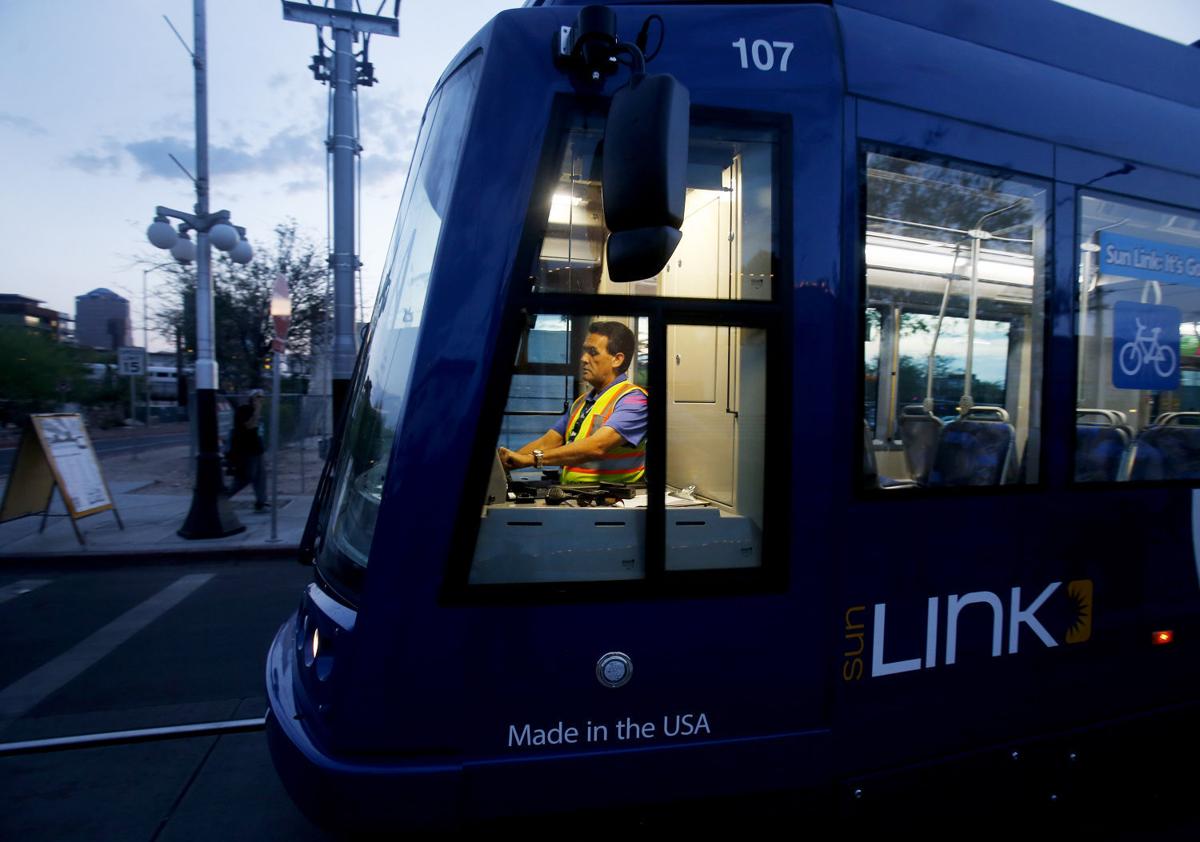My eyes started opening to the problems when I went to Ronstadt Transit Center Sept. 30 to buy a SunGo card.
The machine accepted my debit card, deducted the $20 I wanted on the SunGo card plus a $2 fee, and spit out a receipt that said “UNABLE TO ISSUE.” So, they got my money, but I didn’t get a card. Hmmmmm.
A phone call got me the money back in five days, but the experience made me wonder how widespread the problems are with the system that allows riders to buy these cards and pay for their rides with just a tap on the farebox. It turns out, as Tucson’s mass transit emerges from a crippling strike, it has other significant problems to solve.
Consider Jenny Neeley — she’s the environmental programs coordinator at the Udall Center at the UA. Lives within a mile of work. Goes downtown regularly. She’s an ideal candidate for streetcar rider, but this week she simply gave up on it.
The latest problem started Monday, when she loaded $30 on a SunGo card. These cards, the same one I tried to buy Sept. 30, theoretically allow you to continually load more money onto the same card online. But Sun Tran warns it can take 48 hours for the money to appear on the card.
Wednesday night, more than 48 hours after loading the money, Neeley got on the streetcar and proceeded to the machine where you tap your card or ticket to show you’ve paid for a ride. One of the ubiquitous officers who check that passengers pay was on board.
“When I rubbed the card, it said, ‘unassigned card.’ Of course, fare enforcement is standing on the train. I tell him I have $30 on my card,” she said.
She spent the rest of the ride using her smartphone to pull up a receipt to show the fare enforcement officer she’d paid, and he eventually accepted. But this is just the latest of several problems with streetcar ticketing, including with tickets that were purchased at the kiosks moments before but registered on board as invalid.
“You can’t buy a ticket that works, you can’t load a card and have it work, but you’re guaranteed that every time you walk on the streetcar you have to talk to a fare enforcement officer about it,” Neeley said. “My patience is at an end.”
Of course, not everybody has an alternative mode of transportation. I posted on social media, spent time at Ronstadt Transit Center and went to streetcar stops to find out whether I was getting outlier anecdotes or whether there really are persistent problems with the cards and tickets people use to ride the bus.
An interesting thing happened at Ronstadt. When I asked people if their SunGo cards work, most said yes at first. But several went on to explain that really, no. That’s because they fail unpredictably.
“It doesn’t work once in a while,” 20-year-old Samuel Turner explained to me. “It says ‘not enough value.’ I had to argue with the bus driver a couple of times.”
Romance Bratton, 44, has the same problem. He rides the bus a lot, and maybe four times per year, the pass just doesn’t work.
“Sometimes they’ll tell you to get off,” Bratton said of the drivers.
You can imagine the drivers’ predicament, and one driver told me as much at Ronstadt on Friday. They have to make a call as to whether the person really has a nonfunctional card or is just trying to trick their way onto the bus. The technology’s flaws have left them in that position.
Now, you could argue this is just a bunch of people lying to me, trying to get free rides. But then how to explain the stories told to me by Charlene Mendoza, principal of the Arizona College Prep Academy, 3434 E. Broadway? The school regularly loads the cards of about 50 students who ride the bus to school. A couple of times a week, Mendoza said, students’ cards don’t work.
“We know they have been loaded with money, and they are still, on a regular basis, at the bus itself, not reading,” she said.
The school ends up emailing back and forth with Sun Tran, trying to settle accounts, but in the meantime the school has bought single-day passes for the bus. They hand them out to the students who report having trouble with their cards — as backups.
Sandra Leal has been forced to take this idea of backup passes to an absurd extreme. A year ago she bought four reloadable passes for the streetcar, one for each member of her family. They’ve never worked consistently.
“Every time I tapped it, it (the machine) would say it was out of balance,” said Leal, a pharmacist who works downtown and lectures at the UA.
She ended up calling three times and was told to go to Ronstadt Transit Center to a machine there to verify they were working and loaded. That sort of defeated the purpose of ordering them online, Leal noted.
“I carry all of them with me now because I’m not sure which one will work,” she told me.
Now that is absurd.
Naturally, I asked Sun Tran spokeswoman Kandi Young about the problems. She reminded me that the card system had problems for eight or nine days after the strike ended as the company worked to add additional time to the passes of people who had them during the strike. I told her this isn’t about the strike, and she told me what she hears from Sun Tran customer service.
“I get a report every day, and typically there’s 10 to 20 issues,” she told me. “The numbers are pretty small.”
She noted that there were 53,000 cards in circulation from Sept. 15 to Oct. 15. Also, it’s important to remember that Sun Tran does not operate the streetcar system, though the SunGo cards work for both.
They may be receiving few calls and complaints, but I think that’s missing the forest for the trees. In my case, I’ve learned, the machine that took my money was probably simply out of cards. Another rider at Ronstadt, Joseph Street, 26, told me he’d had the same experience of trying to buy a pass from a machine but getting only a receipt. He carried the receipt with him and talked his way onto the bus.
After the strike, ridership has been slow to rebuild, and we’re nowhere near the surging ridership that transit advocates and City Council members are hoping for.
A glitchy system that rejects passengers who’ve paid fares in advance and takes money without providing cards will never let that happen.







